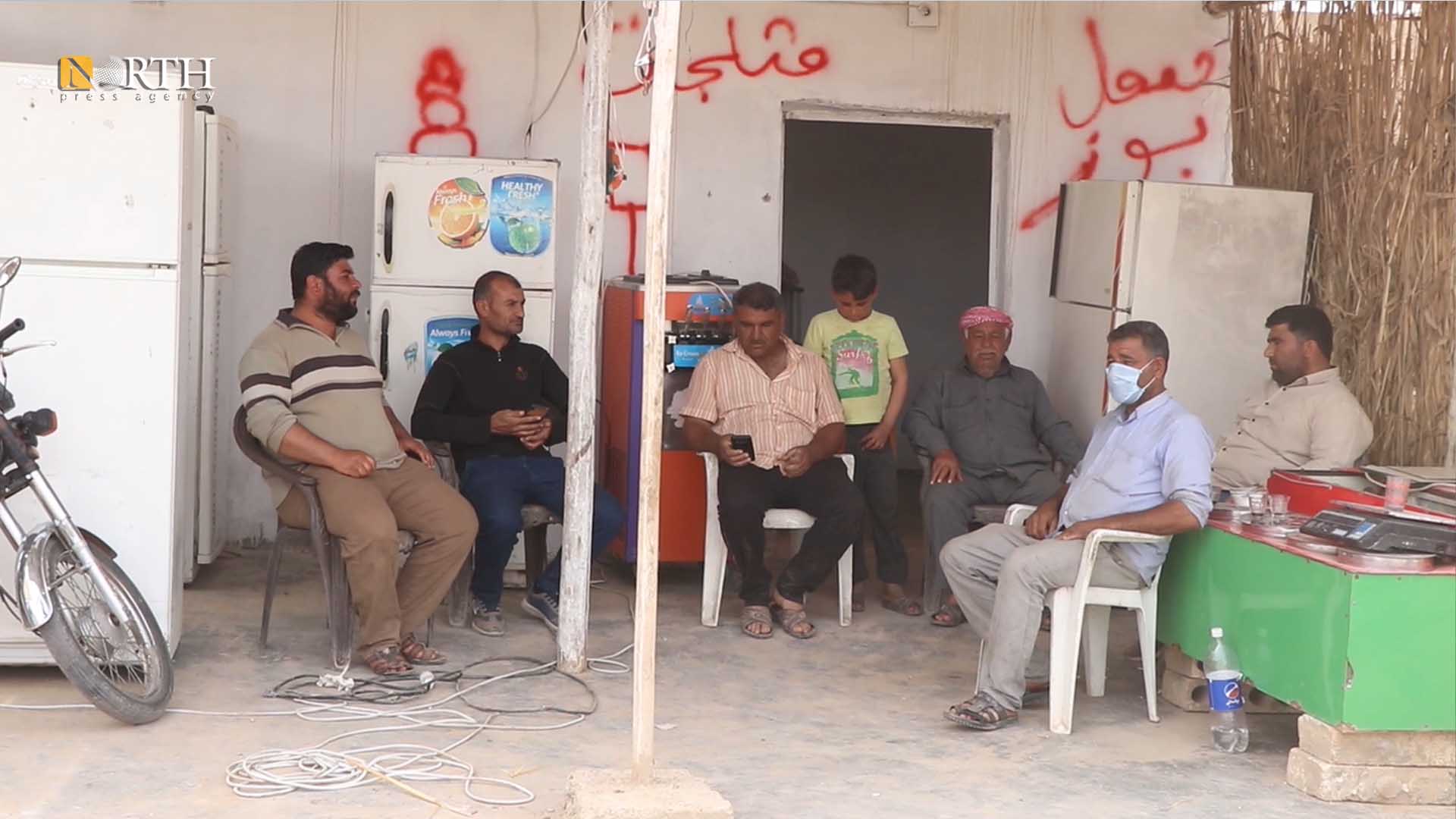TEL TAMR, Syria (North Press) – In front of a motorcycle repair shop in the village of al-Arukba, 5 km south of the town of Tel Tamr, northeast Syria, villager Ahmed Hamdan is busy working as a number of customers are gather around him with no masks.
“There is no commitment to preventative measures. Life is difficult; people are looking for their livelihood, whether in the countryside or in the city. There may be commitment in the city, but it is difficult for the countryside,” Hamdan said.
Abcence of preventative measures
Many customers go to Hamdan’s shop daily to maintain their motorcycles, without wearing masks or physically distancing.
“There is no commitment, because we are an eastern society; we look for our livelihood, especially as there is no agricultural season this year. Whether with coronavirus or other things, people want to live,” Hamdan added.
Since April 6, the cities of Raqqa, Qamishli, and Hasakah have been subject to a complete lockdown, as the Autonomous Administration of North and East Syria (AANES) decided a week later to impose a total lockdown for another ten days in all of its areas.
On April 21, the AANES decided to impose a partial lockdown on all its areas for a period of a week, starting from April 23.
The partial lockdown coincides with the extension of the total lockdown in the areas of Jazira and Tabqa.
According to the Sere Kaniye Health Directorate, with which the town of Tel Tamr is affiliated, coronavirus infections in villages are much more prevalent than in the city.
Since the beginning of April, the Tel Tamr region has recorded more than four deaths and 100 cases of coronavirus.
In front of the shops and alleys, in hundreds of villages in the countryside of Hasakah, residents gather without taking into account physical distancing, while the movement of passers-by is normal.
In the village of Tel Hafyan, south of Tel Tamr, a group of men meet in front of a store selling used household items and chatting together.
“We know that coronavirus cases are increasing, but there are cases beyond our control in which gatherings occur,” Khalil Barakat, a shop owner told North Press.
Disrespect
“When customers come to buy supplies or when they buy bread. I know that gathering is not supposed to happen, but this is beyond our control,” Barakat added.
Barakat attributed the disregard for means of protection to the poor living situation.
“Residents are forced to meet their needs. As you know, conditions are tough for everyone, even harder than coronavirus. For example, I buy bread for my family for 5,000 SYP every two days. This is a big expense for us as low-income people,” Barakat added.
Rima Raso, a spokeswoman for the Health Directorate in Sere Kaniye, said that “the number of infections in the countryside is much greater than in the city. This is related to the lack of awareness and people’s disregard for the decisions of the Crisis Management Team and social distancing.”
Since the announcement of the complete lockdown in all areas of the Autonomous Administration, educational teams have been out within the town of Tel Tamr and its countryside.
“We are trying to cover a large area with education and awareness sessions, but the region is very big and it is difficult for our teams to fully cover it. The matter requires cooperation from the people and more sense of responsibility to help us overcome this crisis with the fewest losses,” Raso added.
According to the latest statistics of the Health Board in the Autonomous Administration, the number of people infected with coronavirus in northeastern Syria has reached more than 15,000 confirmed cases, including 545 deaths, while 1,569 cases recovered.
Despite the decrease in the number of coronavirus infections in the Tel Tamr region since the announcement of the total lockdown, the risk of it spreading again remains, according to the Health Directorate.

